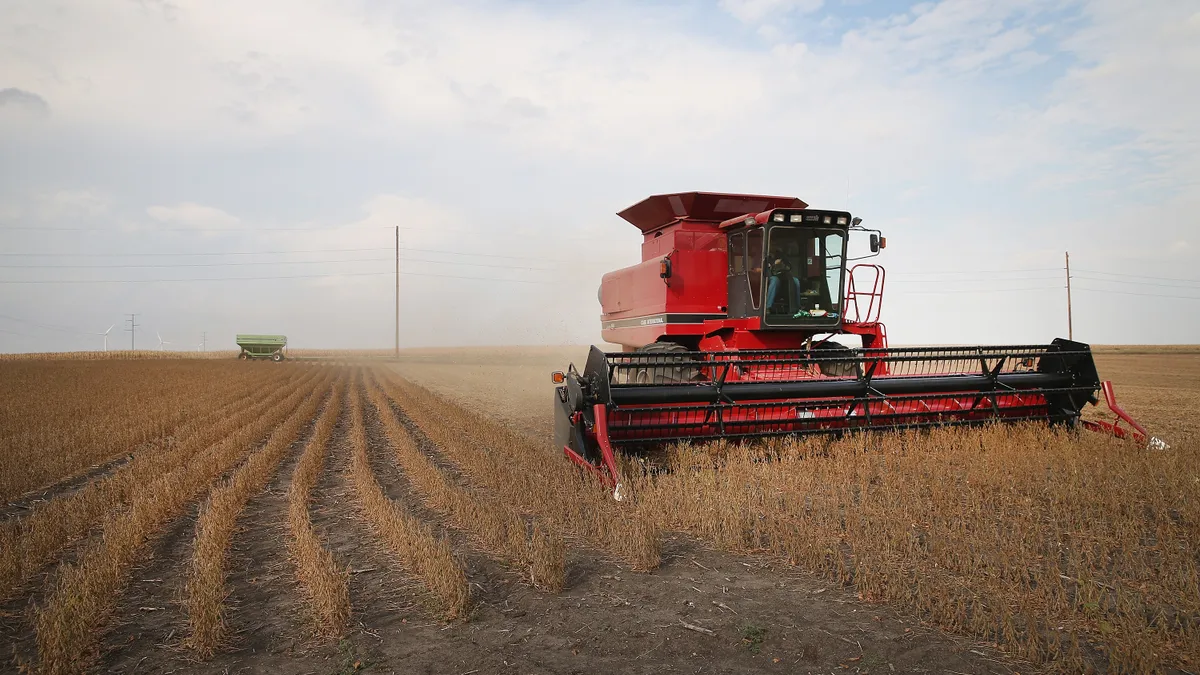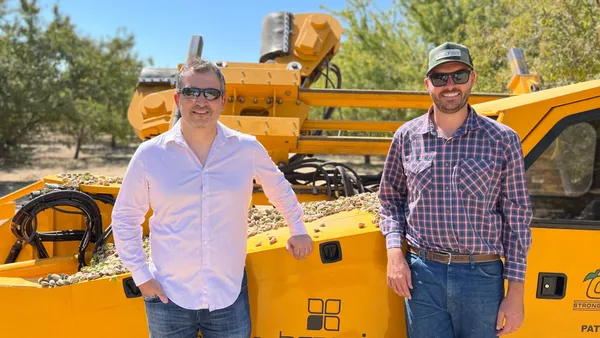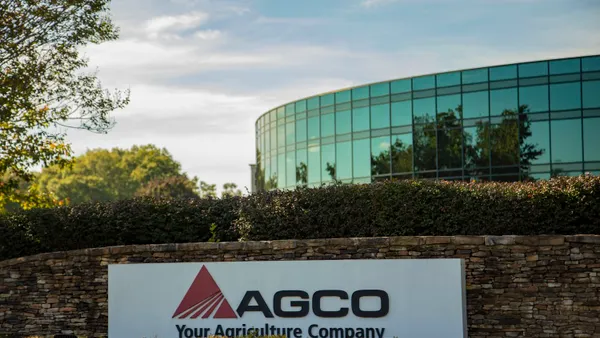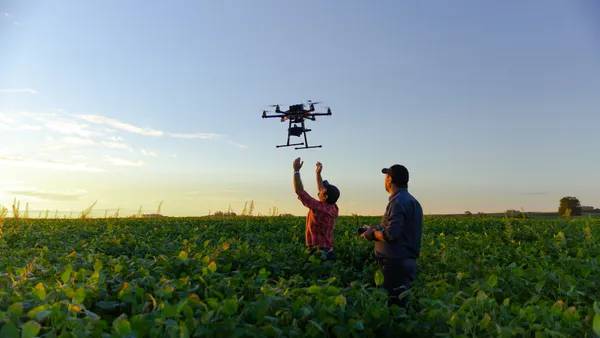Emerging technologies offer one of the most promising paths to decarbonize the agriculture industry, but a lack of financial returns remains one of the biggest barriers for farmers to embrace an agtech revolution.
Adopting rotational grazing and cover crop practices alone will not be enough to reduce carbon emissions, experts say. Sustainable farm practices, along with changes in consumer diets and adoption of new technologies, could help the sector hit net-negative emissions, according to a study from PLOS Climate.
However, with many of these technologies at their early stages, companies, startups and farmers will need to move fast if they want to realize the full benefits of these innovations. Regulatory slowdowns and a lack of incentives for farmers continue to remain a hurdle in building up the market for agtech, experts said at the World Agri-tech Summit last week in San Francisco.
Expanding agtech markets
As plant-based food startups work to develop products that mimic the flavor and texture of traditional meat, reducing the need for animal farms, the hunt for ingredients or supplements to reduce cow emissions is underway.
A type of red seaweed, Asparagopsis taxiformis, is already showing signs of promise. With a mere 0.2% addition to the animal’s feed per day, the plant could one day lower methane emissions by as much as 98% in cattle, according to the U.S. Environmental Protection Agency. The Food and Drug Administration recently pulled a policy governing approval of animal feed additives, opening up the market for startups that make supplements to reduce cattle emissions.
“There are lots of places like methane, enteric methane in particular, where technology and innovation are going to matter a ton,” said Robert Bonnie, the Under Secretary of Agriculture for farm production and conservation at the U.S. Department of Agriculture.
But developing new technologies isn't enough. There will also need to be substantial market demand in order to generate a seismic shift in production practices.
For about 100 years, the agriculture industry has worked to improve productivity and efficiencies with the evolution of machines, often to the detriment of the environment, said Livio Tedeschi, president of BASF Agricultural Solutions. Fertilizer, in particular, is one of the biggest inputs contributing to climate change.
To counter these effects, startups and companies have products that could make a “quantum leap” in transforming global food systems, but there is not yet an established economy of scale to handle an endeavor, Tedeschi said.
“This is what we need to get going,” he said.
Stronger incentives across the value chain promoting waste reduction, reforestation and the adoption of new technologies can help, but customers will also likely need to pay more for these products to establish a “self-sustaining economy of scale,” Tedeschi said.
For now, the market for some of these technologies has stalled as corporate carbon credits don't fully offset the cost of switching to more sustainable practices. Farmers are also hesitant to release their farm data due to privacy and compensation concerns.
“[Farmers] want to see transformation, they care about the environment, they care about resilience and their farms and greater productivity in the current footprint, all of which we’re educating them and talking to them about, but they also care about being paid for their practices and the value of their data,” said Alison Taylor, chief sustainability officer of Archer Daniels Midland Co.
Meanwhile, efforts are underway to fill in carbon emission reporting gaps. Despite an abundance of atmospheric data, there is an information deficit at the activity level where corn is grown or livestock is raised, according to a White House report.
“This is where we need some breakthroughs, it seems,” said David Hayes, a Stanford Law School lecturer and former Biden administration assistant on climate policy.











